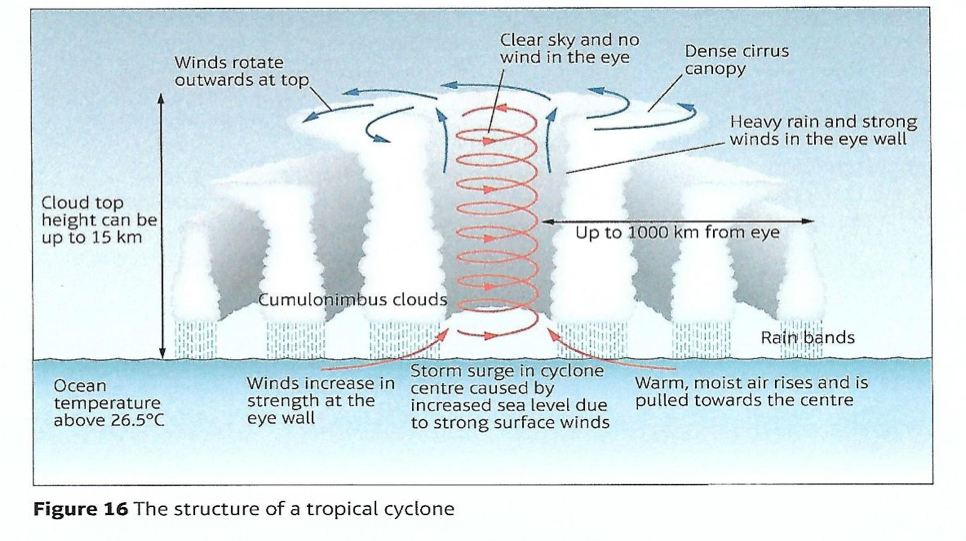Characteristics of Cyclones
Names of Tropical Storms
The strongest tropical storms are called cyclones, typhoons and hurricanes. They mean the same thing, but are formed in different parts of the world.
If these huge storms start in the Atlantic off the west coast of Africa, they are called hurricanes.
In the northwestern Pacific, the same powerful storms are called “typhoons.” In the southeastern Indian Ocean and southwestern Pacific, they are called “ tropical cyclones.”
Formation
There are 5 stages of a tropical cyclone’s formation:
- Warm air currents rise from the ocean. As the warm air rises, more air rushes in to replace it: then it too rises, drawn by the draught above.
- Updraughts of air contain huge volumes of water vapour from the oceans, which condense to produce Cumulonimbus clouds. Condensation releases heat energy stored in water vapour, which powers the cyclone further.
- Coriolis force causes rising currents of air to spiral around the centre of the tropical cyclone. It rises and cools, and some of it descends to form the clear cloudless, still eye of the storm.
- As the tropical cyclone tracks away from its source, it is fed new heat and moisture from, oceans enlarging as it goes.
- Once it reaches a landmass, it loses its energy source from the ocean. Air pressure rises as temperature falls, winds drop, rainfall decreases, and it decays to become a normal storm.
Dissipation
- When it reaches land it loses energy because it has lost its fuel source (warm water)
- When it moves into areas of colder water (below 26.50C)
- When it runs into other weather systems where winds are blowing in different directions
- Explain the location of different tropical storms.
- Your answer should include: Pacific / Atlantic / Ocean / Hurricane / Cyclone / Typhoon / Tropical / Storm
- Explain the 5 stages of tropical cyclone formation.
- Your answer should include: Draught / Warm / Air / Condensation Pressure / Coriolis / Force / Moisture
- Explain 3 ways a cyclone can disperse.
- Your answer should include: Warm / Colder / Water / Other / Weather / Systems

